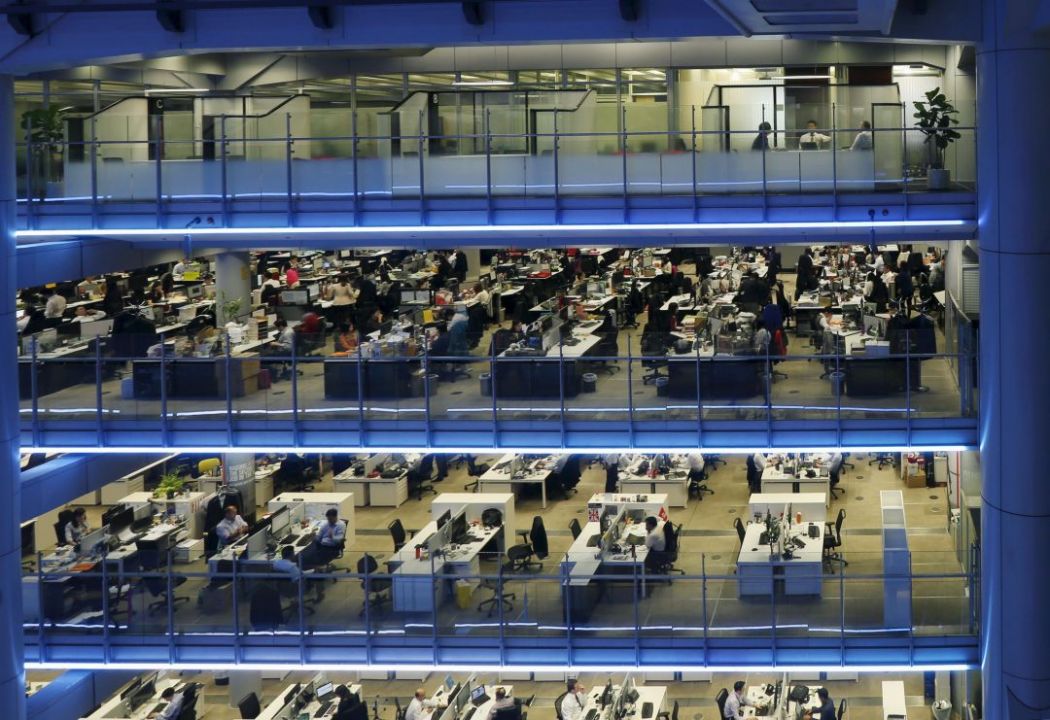HSBC’s board meets on Wednesday to consider moving headquarters to Hong Kong, and concerns about China’s increasing influence over the financial hub and its independent status may be a factor in the decision, said a senior source at the bank.
At the two-day meeting, directors will also focus on the bank’s strategy, with a decision on the domicile issue possibly coming as early as this week.

Chief Executive Stuart Gulliver will lead the board in assessing the results of a nine-month review into a potential relocation, drawn up amid worries over tighter regulation and higher taxes in Britain.
The bank may also want to be closer to faster-growing Asian markets, which account for around two thirds of its profits.
Reuters reported that a relocation to Hong Kong is unlikely to save the British bank much tax, and may actually increase its bill, while signs Beijing is encroaching on Hong Kong’s partial autonomy are further playing on directors’ minds.

“The situation in Hong Kong appears to be getting worse. You have to wonder if the city will remain a suitable base for an independent-minded, top global financial institution,” said an HSBC insider, who asked not to be named due to the sensitivity of the matter.
Since independence from British rule in 1997, Hong Kong has been governed under a “one country, two systems” formula, which gives it partial autonomy from mainland China.
That has ensured judicial independence, a key attraction for international companies seeking an Asian base, and prevented mainland police from operating in the financial centre.
But a series of disappearances among Hong Kong’s bookseller community has prompted fears that mainland Chinese authorities may be using shadowy tactics that erode that formula.

At least 11 factors
Lee Bo, one of the owners of a publisher and bookshop specialising in books critical of China’s Communist Party leaders, vanished in December amid widespread speculation that Chinese authorities may have abducted him in Hong Kong and spirited him across to China for an investigation.
Lee, a British passport holder, surfaced on Saturday, meeting his wife at a guesthouse in mainland China, Hong Kong police said.
HSBC in Hong Kong declined to comment on whether Lee’s disappearance could be a factor in the domicile decision.
Earlier this month, thousands of people took to the streets of Hong Kong demanding to know the whereabouts of the men, who were all linked to a publisher that was reportedly planning a new book on the private life of Chinese leader Xi Jinping.
So far, Chinese authorities have not responded to multiple requests for comment from Reuters, nor have they made any substantial statements explaining Beijing’s role in the disappearances nor the fate of the men.
HSBC’s review of whether to relocate considers at least 11 factors, the bank has said, including the transparency and robustness of the business and legal environments in a given city as well as its long-term stability.

The bank has never publicly said which financial centres it is considering for a possible relocation, but Hong Kong, HSBC’s main base since its creation 150 years ago until 1993, is viewed as the favourite by analysts and investors.
Staying in London would mean the bank remains in one of the world’s largest financial centres, although that might be affected by Britain’s possible exit from the European Union following a referendum that could take place later this year.
Local regulators including the Hong Kong Monetary Authority have said they would welcome a move to the Asian city, a major source of global revenues for HSBC.
Yet, as Chinese growth slows to its weakest in a quarter of a century and Hong Kong’s own growth suffers, those revenues’ contribution may be eroded.
By Lawrence White. Editing by Mike Collett-White.
